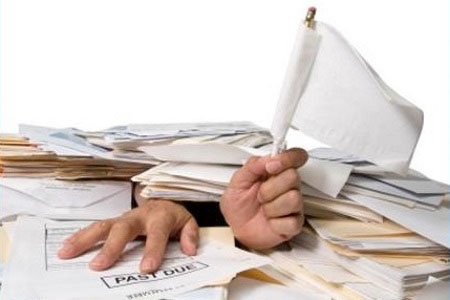Leadership Tips
- Enlightening
- Informative
- Thought-provoking
- Scientifically researched and data-driven
- Pragmatic and useful
- Pertinent and impactful
The different types of stress

Stress has multiple personalities, in that it can mean different things depending on who you're talking to. Stress can mean tense, anxious, uncomfortable, intimidated, sad, impatient, frazzled, annoyed, concerned, excited, or scattered. In physics, stress is defined as "the physical pressure, pull, or other force exerted on one thing or another." In phonetics, it's "emphasis in the form of prominent relative loudness of a syllable or a word as a result of special effort in utterance." Physiology defines it as "a state resulting from a stressor, especially one of bodily or mental tension," while psychology views stress as a "burden on one's emotional or mental well-being by demands on one's time."
There does seem to be a common denominator, however: There is an exertion of pressure to the point where it changes something or someone from their state of homeostasis. When this pressure builds to unhealthy proportions, we are unable to respond mentally, emotionally, and physically to the demands of our environment. Here's the kicker: It doesn't matter whether the pressure we feel is real or imagined. To your body, the "what" is irrelevant. All your system understands is that it is under stress, and needs to respond accordingly.
It's important to make a clear distinction between "stressor" and "stress. A stressor is a stimulus that can either be viewed as good (a wedding) or bad (a car accident). Stress is our response to this stimulus. The factor that determines our reaction to the stressor is our perception of it. This includes our cognitive and emotional appraisal of the stressor (whether it's a threat or a challenge) and our perceived ability to cope with it.
Technically, most of the things we do (or avoid doing) have a component of stress, which means that having a totally stress-free life is difficult to achieve. However, stress itself is not inherently bad. Positive situations, like getting a promotion, getting married, or buying a new home can be stressors too. One could even argue that these are essential stressors because they can fuel progress. Here's how the different types of stress break down:
Acute Stress
- It's an immediate reaction to a serious threat, scare, or challenge
- It triggers the "fight or flight" response
- It can be intense or thrilling, like the feeling you get right before a job interview or before a roller-coaster plummets down
- It usually doesn't have long-term consequences, unless the stressor is extreme in nature
Chronic Stress
- It results from long-term exposure to a stressor or stressors
- It triggers a more subtle stress response
- It lasts longer than acute stress
- It results in a continuous state of alert that eventually leads to exhaustion
Distress
- It causes anxiety or concern, and generally feels unpleasant
- We tend to view stress of this nature as difficult or beyond our ability to handle
- It can be short or long-term
- It decreases our ability to perform to the best of our ability. Problem-solving, decision-making, and general performance is affected.
Eustress
- It's the kind of stress that you can cope with (without negative effects)
- It motivates and focuses your energy so that you can get things done
- It can improve or enhance your performance
- It makes you feels excited
- It tends to be short-term
Stress, whether in the form of "eustress" or "distress" can be acute or chronic. Although all forms of stress can jar your mental and physical state out of equilibrium, it's the long-term aspect of chronic stress that tends to do the most damage. Acute stress is like driving at top speed and coming to a sudden stop; chronic stress is like driving with one foot on the gas pedal and the other on the brake pedal: Your body never really gets a chance to slow down and relax for an extended period of time.